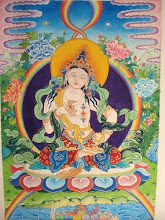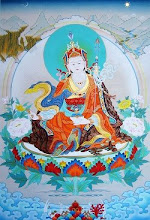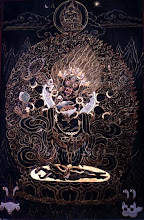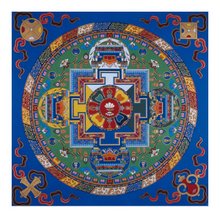Non-sectarian
You make repeated claims that what you teach, your method of meditation and personal investigation, is a means for uncovering the universal law of nature, a law that has nothing to do with any particular religion or philosophy, a law that operates irrespective of rites and rituals. In fact, you seem to express disdain for religious ritual, that it has no place in the search for truth.
And yet we listen to you chant in Pali, the ancient language of the Buddha, for 30 minutes in the morning, all through breakfast and lunch, and following each instance of meditation instruction. No one but perhaps the assistant teacher understands what is being said. To the rest of us it's just melody, and if played excessively loudly, as it is at your Indian centers, an annoying and irritating melody. Is this not ritualistic?
Meditators take only two meals a day, and may not eat after noon. This is a tradition among monks of certain schools of Buddhism, a tradition that began long ago because walking to town to beg food three times a day took too much time and was thus impractical. Granted, full-time meditators need less food than they otherwise might normally need. But the noon prohibition seems to be following tradition for the sake of tradition.
Self aggrandizement
You claim in your lectures that you are entirely uninterested in notoriety. In fact, you teach that the pursuit of fame, honor, and social acclaim is “madness,” a manifestation of ignorance of the law of Dhamma. It seems to me, however, that the erection of a one kilometer high, gold-plated pagoda outside Mumbai by your organization is not only a towering monument securing your reputation as a great Dhamma teacher, it is also a huge waste of money and human labor, and seems as well to have nothing to do with the pursuit or propagation of science.
Scientific method
The claim is repeatedly made in your taped discourses that Dhamma is a universal law of nature, a science of the mind, the science of liberation. Yet you refuse to reveal the method's complete philosophy and operational principles on the very unscientific grounds that by tradition such information is provided to the meditator on a need-to-know basis. Does this not violate the ethical foundation of science, which calls for full disclosure of all operating procedures and data? On what grounds is a scientist justified in withholding such information?
Knowledge through experience
You claim the only way to know something is through direct experience, that intellectual knowledge of impermanence is by itself not enough to lead to liberation, or at least a better quality of life, and that meditators must practice awareness of the body to feel impermanence. If you yourself do not claim to be enlightened, liberated, or otherwise no more than another aspirant walking the path, on what grounds other than an appeal to authority do you claim that your method will lead to complete liberation? Aren't you just passing on second-hand information? In what way is this claim unlike other unverifiable religious claims that certain practices will lead to an eternal afterlife based on the scriptural authority of a supernatural being?
Historical accuracy
You claim that the Buddha taught Vipassana and that he taught the same scanning method you teach at your centers. Yet there seems to be no textual evidence to support this claim. There is also an absence of evidence that thousands of people across northern India once practiced Vipassana. Where is the evidence?
Final liberation
You teach that the idea of “I” is a fiction, that human experience is composed of the fives khandhas – body, feeling, perception, volition, and consciousness. What is it, then, that needs liberating? If all compounded things are conditioned, such as human beings and human experience, isn't my decision to follow the path (or not), to react (or not), likewise conditioned? If there is no “I,” but also no strict determinism, then where are such decisions made? By what? And for what purpose?
#



























What an interesting path you've chosen. This was quite the opposite what I was expecting when I was looking for Star Trek fans.
ReplyDeleteI’ve known a wind so cold. I’ve seen the darkest days. But now the winds I feel are only winds of change.
ReplyDeleteBoldly going where no Trekkie has gone before.
Engage!
(And if you don't mind me saying so, Hot Mama doesn't much fit the Trekkie profile, either.)
Nice to meet you and thanks for stopping by.
I would like to attempt answers, to explain the things how I understand them, without intending to be absolutely right.
ReplyDelete1. Non-sectarian
the question about chanting is raised at the end of the satipatthana course's night discourses. You will know about it when you'll sit it :P
about the noon-prohibition, I think there is something going beyond tradition in it. Actually I think it was imposed to make sure that the monks sleep with empty stomach, I think it helps to remain aware and equanimous all night long (except in deep sleep). Eventually we have to get to the stage where we maintain these two 24h a day. Very old students learn to practice this way. The satipatthana sutta is also about this.
2. Global Pagoda : it is just to make people hear about the existence of this teaching. What is important is the mental action, the volition behind it. We cannot judge the physical action in itself. So building a pagoda may be or may not be a good thing. But I think the mental action is wholesomne.
3. I think the method is scientific in the sense that the exploration is methodic and no one has to believe anything. Only accept things after they have been "proven" by personnal experience.
4. knowledge through experience : when you will be sotapanna, you will know with certainty. Till then there will always be some doubt about the technique. We're all in the same case. But the more you doubt, the more you hinder your progress. Better work without skepticism, and take for granted only what has become clear. If you find the technique helpful to you, keep working, otherwise you can also leave it.
5. Historical accuracy : read the suttas. The satipatthana course has been made for that purpose. Actually, sensations are the main gate for craving and aversion to arise, though not the only one. But once you'll get all your craving and aversion due to sensations eradicated, I think you will ba far enough to work in a much higher way, maybe directly on the arising and passing away of the 5 aggregates.
6. Same question in satipatthana course's discourse. Answer : ignorance needs liberation. Nothing else. Thinking about this problem is of no use to my sense. Only experience of your mind-matter phenomenon will give you the answer.
Would want to add - it is not that ariyas are not there today. I have personally know somebody who has attained sotapanna magga through vipassana as taught by Goenkaji
ReplyDelete